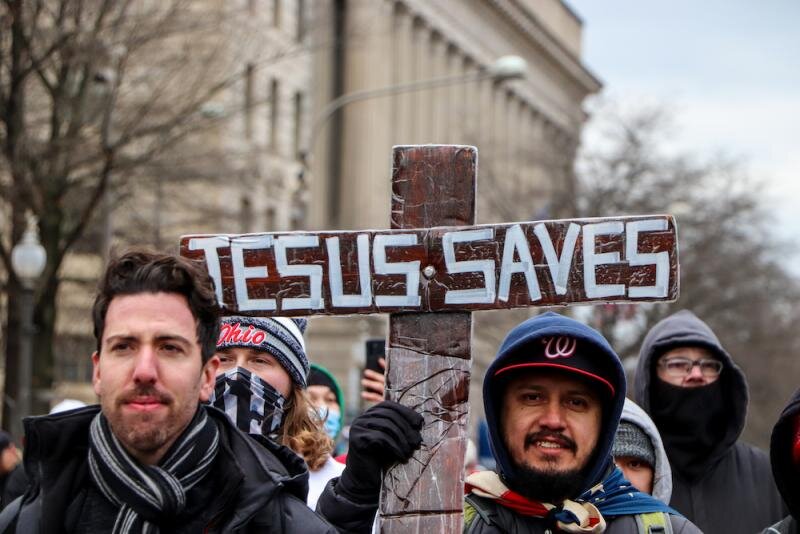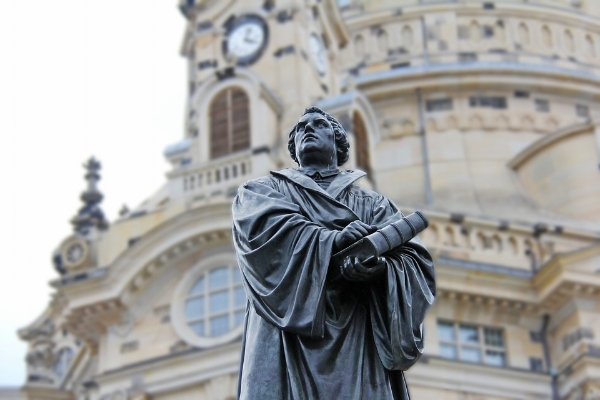This is not the post I’d planned to write today. I’d planned to muse on how the the reset of the New Year, though in many ways arbitrary, kindles in us fresh hope that maybe this year will be different. Then, we woke up on New Year’s Day to a car that wouldn’t start. Our dryer broke this week. And now, making them seem childish in comparison, yesterday we saw a disgraceful attack on the U.S. Capitol and the democracy it represents. Gone are those thoughts on naive optimism. We’re back in the land of the living.
As I started to see the events in Washington D.C. unfold, I sat watching live updates on Twitter with tears streaming down my face. It was a day, sadly, I was not shocked to see, but it was one I had hoped and prayed would not come. Look at what has happened to us, I texted my dad. Look at what we’ve become. For all of the calls for “law and order” over the last months, “law” transferred to the whims of a mob, and order descended into chaos. And I grieved.
Above it all, one picture set me over the edge, sent the tears flowing, and made me beg, “Lord, have mercy.” Amidst the mob pushing up the Capitol Building steps, entangled with the Trump flags and the American flags, there it was in florescent yellow: JESUS SAVES. I saw others later, including a small wooden cross, with the words emblazoned in white.
And this is why I’m writing today. Because what we saw yesterday is not the way of the Jesus I follow, and yet violence has been baptized in His Name. This is not the first time this has happened in the history of the church or the history of our nation. The events of yesterday were not an unforeseen or unpreventable anomaly, but rather the natural overflow of the language and actions of both political and religious leaders. In this case, we are well past the point of holding space for different political applications of our theology. We have passed the point for finding unifying common ground in the midst of diverse views. (I do believe, for the record, these things are of incredible value.) We, in the American church (specifically the white, evangelical, American church that raised me), once again must take a good look and a prayerful reflection on the way of Jesus and of His Kingdom.
I’ve been thinking today of two moments in the last day of Jesus’ life. The first is the moment when, as Jesus is being arrested, Peter draws his sword and cuts off a man’s ear. It’s not a violent moment in a vacuum, just as yesterday was not a moment in a vacuum. It was the culmination of a misunderstanding, even among the disciples, about the type of Kingdom Jesus brought and the type of King He would be.
The Jews who longed for Messiah to come expected someone to come powerful, strong, victorious, and defeat their enemies. They expected a King on a war horse, bearing the sword, bringing Rome to her knees. But instead Jesus came asking them to love their enemies and pray for their persecutors. He exalted those who were lowly and overlooked—and even those who were hated. As we just rehearsed throughout the Christmas season, He came in a humble way, in a quiet way, setting aside His power to become a servant.
Jesus wasn’t interested in political power then. I don’t think He’s much interested in political power now. But Peter, bless him, didn’t understand this. And so he drew his sword, as if Jesus needed defending. Jesus chastised him and told him to put his sword away, and then he healed the man who had come along to take him to what would become a brutal end.
“My kingdom is not of this world,” Jesus would tell Pilate in the hours to come. “If my kingdom were of this world, my servants would have been fighting, that I might not be delivered over to the Jews” (John 18:36). Jesus’ Kingdom and power were not the type the Jews expected nor the form Pilate could recognize. It was not a kingdom of strongmen or brash shows of strength. It was not a power held by destroying or dehumanizing his enemies or by the size of an army. It was—and is—a kingdom where the lowly and weak are called blessed. It was a kingdom of peace and of service.
But this is not the sort of kingdom the Jews were looking for—and based on the events of yesterday, it’s not the sort of kingdom some who claim the name of Jesus want today. This leads me to the second episode I’ve been reflecting on—and I have the Bible Project to thank for that, as I heard them discussing it recently in a very unrelated podcast episode.
When Pilate found no cause to kill Jesus, he offered the Jews a choice for prisoner release: Jesus or Barabbas. Barabbas, which literally means “son of the father,” was an insurrectionist. According to the Gospel accounts, he had committed multiple crimes including robbery, insurrection, and murder. He was a freedom fighter, one dedicated (we can presume) to freeing Israel from her foreign oppressors. He fought in the way the Jews longed for the Messiah to fight—with the sword, with violence, to gain power. And on that day, when God’s people were offered a choice between these two “sons of the father,” they chose not the Son who spoke peace but the one who bore the sword. The true Son of the Father, who offered the way into the Kingdom of God, was sent to His death.
So, we come back to the current events at hand. If the mob yesterday had been faced with the same choice, which “son of the father” would they have chosen? In spite of their signs, there is no doubt in my mind. Though many of them, I am sure, would profess to be Christians, as would some who, though not present, cheered them on from afar, they show by their actions that they would rather follow the way of Barabbas, and not the Jesus they claim to follow. They want political power and expediency—at all costs. They think violence will bring about peace. And they do it in the name of God.
Thus we come face to face with the ugly, natural end of our failure in discipleship. This failure extends beyond the events of yesterday and the people who participated in them. We have sold ourselves out to the violence committed yesterday with a thousand tiny steps and silences, quietly supporting or ignoring the ideology that has allowed it to blossom. It has appeared time and time again throughout the history of the church, when we have lost sight of the suspicion Jesus teaches his followers to have towards earthly power.*
The church has failed these men and women, who see no incongruence with erecting a cross and a noose on the same lawn. She has failed her people when they pledge allegiance to a political party or a human leader above the Savior they claim to follow. We have failed when Christians cheer for a man who dehumanizes his enemies, who mocks those made in God’s image, who refuses to bend from arrogance, who incites violence, and who has the blasphemous audacity to suggest God needs his protection. We have failed in our discipleship when people do not have the ability to discern truth from lies or conspiracy theories from reality, no matter how many voices join in telling the same tale. We have failed when disciples of Jesus lose sight of a Kingdom that is infinitely larger and more precious than any nation or people group.
The answer for this will not come in trading one political party over another. It will not be remedied with a new administration or even with the prosecution of wrongdoers. The answer comes by taking a long look at our blind spots and graciously listening to our brothers and sisters who are trying to point them out. (For example, the white evangelical church in America can learn a lot from the Black church and the church in the Majority World. I have benefited greatly from diversifying the voices I listen to and developing friendships with people from different traditions and perspectives than my own.) It comes as we lament and repent over the ways we have played a part in this discipleship failure. And it comes as we humbly ask Jesus to show us the way of His Kingdom.
Today, many of us are grieving, and it feels appropriate to do so. But then we need to get back up—because we’ve got a lot of work to do.
*This is a longer conversation for another time, but as a student of church history, it becomes clear that increased earthly power and “influence” in culture is dangerous to the faithful witness of the church. This does not mean that Christians must alway forgo traditional power and influence, but it does mean they should always be held extremely suspect. We would do well to be aware of the dangers they have posed in the past and of the negative things that have resulted. The church is not the empire, and we would do well to remember this.





